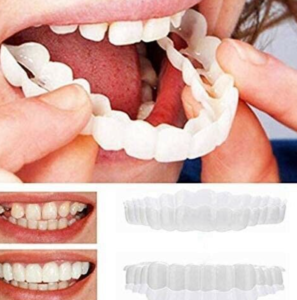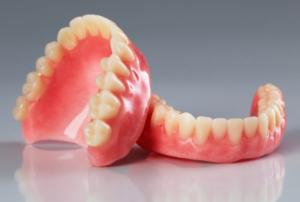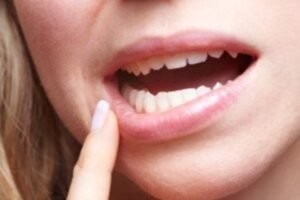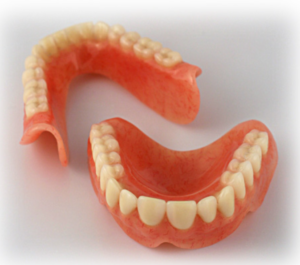Ill-fitting dentures can cause serious oral health problems, discomfort, and difficulty speaking. Signs of poorly made dentures include loose fit, discomfort, and the need for excessive adhesive.
Dentures can be an effective solution for those with missing teeth, but badly made or poorly fitting dentures can be a real headache. Ill-fitting dentures can cause serious pain and discomfort, as well as difficulty with speaking and eating. Signs that your dentures are poorly made include a loose fit, discomfort, and the need for excessive adhesive.
If you are experiencing any of these issues with your dentures, it may be time to consult with your dentist about how to improve your denture fit and overall oral health.
Overview
Good dentures are essential for your oral health and overall well-being. Unfortunately, not all dentures are created equal, and some may lead to serious problems. Ill-fitting dentures can cause discomfort, require a thick layer of adhesive, and feel loose in your mouth. Common issues of bad dentures include teeth that look unnatural, too flat, or show too much of your gum line, making them too noticeable or unappealing. To avoid these issues, your dentures should be meticulously crafted and placed with natural-looking teeth to simulate your original smile. Dental implant alternatives, like partial dentures or temporary dentures, are also available to ensure optimal oral health.
| Arch Dental – From Bad Teeth | Poor fitting denture | Denture Options | How Poor Dentures affect your Speech |
| Dentures: Before and After Pictures of Patients | How to tell if your denture fit isn’t right | very-bad-teeth – DentuCare |
| Before and After Images | See The Difference | Bad Dentures Can Lead to Serious Oral Health Problems | What to Do if You Have Bad-Looking Dentures |
By keeping your dentures in good shape, you can maintain your oral health and confidence with a beautiful, natural-looking smile. Don’t let bad dentures affect your speech or overall health. Talk to your dentist today about your denture options and how to choose the right fit for your smile.

Credit: m.youtube.com
Signs Of Poorly Made Dentures
Are you experiencing discomfort and looseness when wearing your dentures? Do you need a thick layer of adhesive to keep them from falling out? These are signs of poorly made dentures. Check out pictures of bad dentures and learn how to tell if your dentures are poorly fitted.
| Signs of Poorly Made Dentures |
| Your dentures should fit comfortably and appear natural. If you experience discomfort or notice any of these signs, your dentures may be poorly made: |
|
The Effects Of Ill-fitting Dentures
Ill-fitting dentures can cause discomfort, difficulty talking and eating, and can even lead to serious oral health problems. Pictures of bad dentures can show teeth that appear too big or flat, give too much gum exposure, or look like a picket fence.
It’s important to ensure that dentures fit properly to avoid these issues.
Ill-fitting dentures can cause a host of problems for wearers. Sore spots and irritation are common when dentures do not fit properly. Gum inflammation can also occur, which can lead to further oral health issues. Difficulty chewing is another problem that can arise, as well as speech impairment. But perhaps the most concerning issue from ill-fitting dentures is bone loss, which can occur over time if dentures are not properly aligned. It is important to get dentures fitted correctly by a professional and to have them adjusted if any problems arise. Regular dental check-ups are also essential for ensuring that your dentures are fit and functioning properly.
Common Problems With Dentures
Poorly made dentures can cause various problems, including bad appearance. Signs of bad dentures include teeth that look too flat or show too much of your gum line. Natural-looking dentures are essential to maintain proper oral health and prevent discomfort.
| Common Problems with Dentures |
| – Chicklet Teeth |
| – Dark Teeth |
| – Flat Teeth |
| – Showing Too Much Gum |
| – Looking Like a Picket Fence |
| What are the examples of bad dentures? Some common issues of dentures that aren’t made for you are teeth that look like “Chicklet” teeth, dark teeth and teeth that look too flat, show too much of your gum line, or look like a picket fence. Your dentures should look as natural as possible — and show just the right amount of teeth. |
| What should dentures look like in your mouth? The artificial teeth are meticulously crafted and placed into the denture bases, producing a natural-looking result. Dentures even simulate the natural gum color, making them look even more like natural teeth, so there’s no need to feel self-conscious about wearing them. |
| The Effects of Poor Fitting Dentures: Do your dentures feel loose or cause discomfort in your mouth? If the answer is yes, you likely have ill-fitting dentures. Dealing with Ill-Fitting Dentures can lead to serious oral health problems. Signs of Ill-Fitting Dentures include teeth that look like “Chicklet” teeth, dark teeth and teeth that look too flat, show too much of your gum line, or look like a picket fence. |
The Benefits Of Well-made Dentures
Well-made dentures can offer numerous benefits such as an improved appearance, better oral health, and increased self-confidence. However, bad dentures pictures can show ill-fitting dentures that cause discomfort, require excessive adhesives, and even lead to serious oral health problems. Regular dental checkups and getting well-made dentures can prevent these issues.
Dentures are a practical and effective way to improve one’s appearance, but the benefits don’t just stop there. Well-made dentures can also greatly improve one’s ability to chew and speak, leading to greater self-esteem and quality of life. Additionally, wearing dentures can help prevent bone loss and maintain the structure and integrity of the jawbone. It’s important to ensure that your dentures fit properly to avoid discomfort and oral health problems. Poorly made dentures can lead to a variety of issues, such as “Chicklet” teeth, too much gum line showing, or a virtually flat appearance. Dentures should appear as natural as possible, so don’t hesitate to invest in a quality set.
How To Choose A Good Denturist
Choosing a good denturist is crucial to avoid bad dentures. Look for denturists with experience and specialized training, who can provide before and after pictures of their work and have positive reviews from clients.
Maintaining Good Denture Health
It’s important to keep your dentures clean to maintain good denture health. Clean them at least twice a day with denture cleaner and a soft-bristled brush. Be sure to see your denturist regularly for adjustments and check-ups to address any ill-fitting issues that may arise.
Avoid hard and sticky foods that can damage the denture material and cause discomfort in your mouth. When not in use, store your dentures properly in a dampened towel or in a designated denture container to avoid damage and bacteria build-up.
| Do’s | Don’ts |
|---|---|
| Use denture cleaner and soft-bristled brush | Use regular toothpaste and harsh bristled brush |
| See your denturist regularly | Adjust your dentures yourself |
| Remove and rinse dentures after eating | Sleep with your dentures on |
By following these tips, you can maintain good denture health and extend the lifespan of your dentures.

Credit: www.churchfielddental.co.uk

Credit: m.facebook.com
Frequently Asked Questions Of Bad Dentures Pictures
How Can You Tell If Dentures Are Poorly Made?
Ill-fitting dentures are a sign of poorly made dentures. If the dentures feel loose, cause discomfort, and require a thick layer of adhesive to stay in place, they are likely poorly made. Additionally, artificial teeth that look too flat, too dark, or like “picket fence” teeth are also examples of poorly made dentures.
The dentures should look as natural as possible and show just the right amount of teeth.
What Are The Examples Of Bad Dentures?
Bad dentures may include teeth that look too flat, dark teeth, teeth that show too much gum line, or teeth that look like a picket fence. Ill-fitting dentures can feel loose, cause discomfort, and require a thick layer of adhesive for staying in place.
Natural-looking and properly fitting dentures should simulate the gum color and show just the right amount of teeth.
What Should Dentures Look Like In Your Mouth?
Dentures should look natural in your mouth, with meticulously crafted and placed artificial teeth and gum color that resembles your natural teeth. There should be no reason to feel self-conscious about wearing them. Avoid ill-fitting dentures with telltale signs like discomfort or looseness that require thick layers of adhesive.
What Is Poor Fitting Dentures?
Poor fitting dentures refer to dentures that do not fit properly in the mouth. Signs of ill-fitting dentures include discomfort, looseness in the mouth, and the need for excessive adhesive to hold the dentures in place. It can also cause problems with speech and lead to serious oral health issues.
Conclusion
Ensure that you have a comfortable smile by wearing dentures that look as natural as possible. Poorly fitting dentures can cause discomfort, speech issues, and other oral health problems. It is essential to have dentures that fit well so that you can maintain proper oral hygiene and enjoy your day-to-day life without worry.
We have explored the signs of ill-fitting dentures and common issues associated with bad dentures that are not appropriate for you. It is crucial to look after your dentures, consult your dentist regularly, and make necessary changes to your dentures for better oral health and a confident smile.










